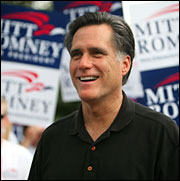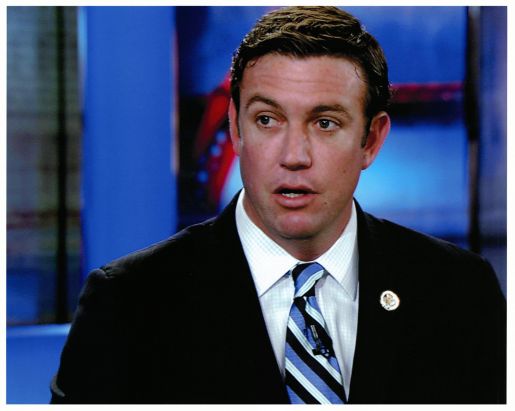Update: Duncan Hunter dropped out of the presidential race on Jan. 19, 2008.

Republican presidential candidate Duncan Hunter has served in the U.S. House since 1981 as a representative of California’s 52nd district, which encompasses areas east of San Diego. Hunter has earned a lifetime voting score of 9 percent from the League of Conservation Voters. Environment and energy issues are not mentioned on his campaign website and are not a priority in his presidential campaign.
Key Points
- Acknowledges that global warming has occurred, but says it’s not clear how much human activity has contributed to the problem.
- Calls for achieving energy independence by boosting energy production from all manner of sources.
- Supports renewable energy and calls for cutting taxes on the production of energy from clean sources like geothermal, wind, and solar.
- Supports nuclear power and calls for cutting taxes on its production.
- Wants to open the Arctic National Wildlife Refuge to oil drilling (and voted to do so in 2005 and 2001).
- Wants to boost production from the oil sands in Alberta, Canada, and oil-shale resources in the Rocky Mountain region of the U.S.
Video
Watch Hunter answer a question about climate change at the May 3, 2007, GOP debate (he speaks right after Huckabee):
Quotable Quotes
- “I reject Al Gore’s and others’ doomsday alarmism on the subject [of climate change].”
— Aug. 13, 2007, in an interview on Free Republic
- “I think that global warming and the need to be energy independent gives us a great opportunity. I think we should bring together all of our colleges and universities, the private sector, government laboratories, and undertake what for this next generation will be a great opportunity and a great challenge to remove energy dependence on the Middle East and at the same time help the climate. I think we can do that. We need to take taxes down to zero for the alternative energy sources. We need to make sure that all the licensing from our laboratories goes to the private sector, goes to the American manufacturing sector, for these energy systems. I think we can do it.”
— May 3, 2007, at a GOP presidential candidate debate
- “Clean power production provides greater reliability for our electricity system while promoting cleaner air and water. In addition, according to the Energy Information Agency [sic], expanding renewable power production helps reduce the risk of future price increases for electricity. Today, renewable power sources provide consumers reliable power that is cost-effective over the long run. Unfortunately, their high initial capital costs discourages investment in renewables. Providing tax incentives for new renewable power production can make the difference. … Investment in new renewable power is good for the economy and the environment.”
— Feb. 27, 2003, speaking before the House of Representatives
Platform & Record In-Depth
- Cosponsor of legislation in 2005 and 2007 to end the moratorium on offshore drilling in U.S. waters.
- In 2006, cosponsored legislation to give tax credits to coal-to-liquid fuels.
- In 2005, voted against increasing fuel economy standards to 33 miles per gallon by 2015.
- In 2005, voted in favor of the Energy Policy Act, a sweeping, oil-friendly energy bill opposed by enviros. The act passed and Bush signed it into law in August 2005.
- In 2005, cosponsored legislation to accelerate timber removal after catastrophic events such as hurricanes and tornadoes.
- In 2003, cosponsored the Healthy Forests Restoration Act, a logging-heavy bill opposed by enviros and signed into law by President Bush in December 2003.
- In 2003, cosponsored legislation to greatly restrict the presidential power to designate national monuments.
- In 2003, cosponsored the Critical-Habitat Reform Act, which would have placed a number of restrictions on the creation of critical habitat for imperiled species under the Endangered Species Act.
- In 2003, cosponsored a bill that establishes a timetable for how long federal “wilderness study areas” can retain that status, essentially forcing a decision on whether or not to designate an area as wilderness within 10 years. The bill also stipulated that areas previously studied for wilderness designation cannot be studied again.
- In 2003, cosponsored legislation to authorize the U.S. to produce whatever amount of methyl bromide, an ozone-depleting fungicide, it had requested under the critical-use exemption process of the Montreal Protocol, even if the parties to the protocol did not approve the entire amount. The Montreal Protocol is intended to phase out pollutants that deplete the ozone layer.
- In 2003, cosponsored a bill to extend the tax credit for electricity produced from biomass.
Still Haven’t Gotten Enough
- Read Hunter’s official bio.
What did we miss? Tell us below in comments. We’ll update this page as the presidential campaign continues.
Todd Hymas Samkara and Kate Sheppard contributed to this fact sheet.



